Keywords: Indonesia
There are more than 200 results, only the first 200 are displayed here.
-
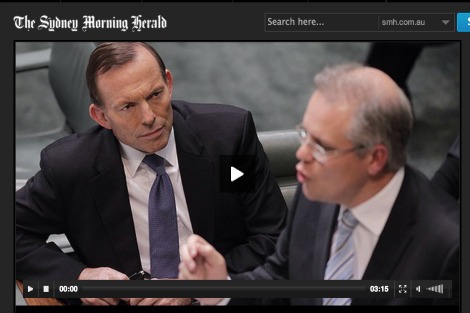
INTERNATIONAL
- Justin Glyn
- 22 January 2014
32 Comments
The current dispute with Indonesia over border incursions by the Australian Navy is symptomatic of a deeper problem — the militarisation of political discourse. Von Clausewitz famously claimed that 'war is politics by other means': in other words, that military force is employed in service of political ends. In Australia, as elsewhere in the West, this is being taken to an extreme not previously seen outside authoritarian societies.
READ MORE 
-

AUSTRALIA
- Marg Hutton
- 16 January 2014
5 Comments
In 2001 Prime Minister Howard tried to distance Australia from the SIEVX tragedy, in which 353 asylum seekers drowned, by repeatedly referring to the sinking as having occurred in 'Indonesian waters'. If there was any doubt then that SIEVX was an Australian tragedy, in 2013 there is none. There are now young kids growing up in Australia, who were born here and speak with Australian accents, who had brothers and sisters who drowned on SIEVX.
READ MORE 
-
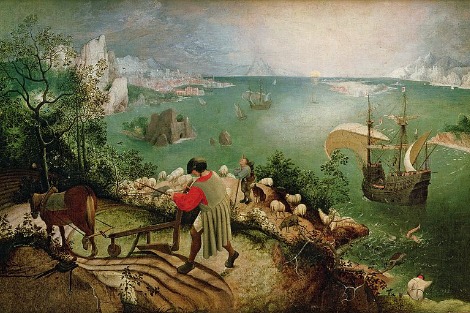
AUSTRALIA
- Maureen O'Brien
- 06 January 2014
4 Comments
With his back to the sea, the ploughman negotiates the wooden plough drawn by his horse. If he heard Icarus falling from the heavens it didn't interrupt his routine. The crew of a ship close enough to rescue the drowning boy instead takes advantage of a favourable breeze and sails away. The shepherd daydreams, the angler continues fishing. To all intents and purposes Icarus is invisible to those in his immediate vicinity.
READ MORE 
-
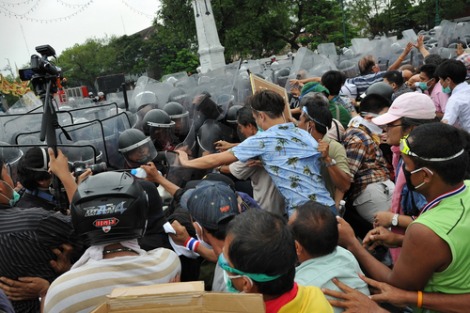
INTERNATIONAL
- Tony Kevin
- 04 December 2013
11 Comments
We are witnessing a serious opposition-led threat to democratic process and respect for election results in Thailand. Possibly the Abbott Government is so traumatised as a result of its current tensions with Indonesia and China that it won't dare to open its mouth on Thailand. But this is a clear case where Australia should comment as a friend of Thailand and of its democratically elected government.
READ MORE
-
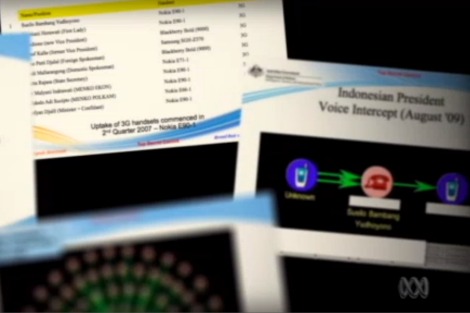
MEDIA
- Walter Hamilton
- 29 November 2013
14 Comments
The ABC does not have a special responsibility to be 'diplomatic' in deciding what to report and what not to report. It does not have an obligation to adjust its news judgments to implicitly support government policies, or to weigh up what the majority of the public might think to do in such a situation. It must only exercise its professional judgment as to 'news value', and be accountable for it.
READ MORE 
-
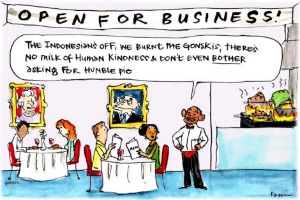
CARTOON
- Fiona Katauskas
- 27 November 2013
3 Comments
View this week's offering from Eureka Street's award winning political cartoonist.
READ MORE 
-
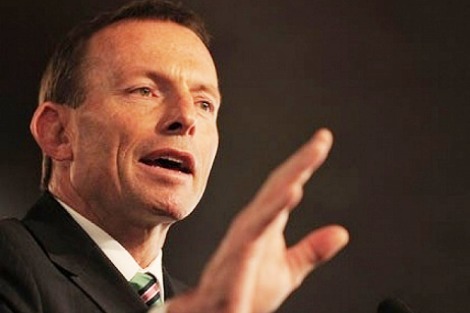
ECONOMICS
- Michael Mullins
- 25 November 2013
14 Comments
The prime minister said he 'sincerely regrets any embarrassment that recent media reports have caused' Indonesia's President Susilo Bambang Yudhoyono. Did he mean the media was doing its job and that the embarrassment was collateral damage? Or was he regretting that the media was out of line? Outspoken monarchist Professor David Flint says the government should retaliate against the ABC by reviewing the its overseas broadcasting contract.
READ MORE 
-

INTERNATIONAL
- Bill Calcutt
- 25 November 2013
6 Comments
The recent observation by a close Asian ally that 'spying on friends is amoral' belies an apparently growing gap between the illusion of civility and honesty and the reality of our suspicious relations with 'foreigners'. While the justification for the development of ubiquitous electronic surveillance capabilities is counter-terrorism, the greatest beneficiaries may be private business interests gaining a competitive advantage in a global free market.
READ MORE 
-

AUSTRALIA
- Andrew Hamilton
- 25 November 2013
12 Comments
A minor diversion in the disruption of Australia's relations with Indonesia has been the entanglement of political commentators. Many have wriggled on the hook of their conviction that international relations are an ethics free zone in which the only guiding star is national self interest. But that does not stop them from launching a raft of ethical judgments. It is worth considering on what ethical principles international and national politics might rest.
READ MORE 
-

INTERNATIONAL
- Tony Kevin
- 20 November 2013
36 Comments
Tony Abbott's reply in Parliament to Adam Bandt may have seemed a balanced, well-crafted answer but it was way too clever. Indonesian anger against Australia continues to grow. These events will harden already strong views in Jakarta of Australia as a false friend to Indonesia, as a nation whose only true affinities are with its four fellow members of the five-power Anglo-Saxon club.
READ MORE 
-
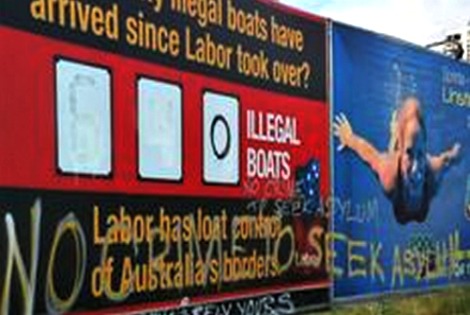
AUSTRALIA
- Tony Kevin
- 13 November 2013
6 Comments
Labor has made a political meal of last week's mishandled asylum seeker rescue. But neither Bill Shorten nor Richard Marles has shown any sympathy for the asylum seekers themselves. Meanwhile the Coalition's stubbornness has set back relations with Indonesia, has it pressed ahead with its turn-back policy to the point where Indonesia had to say very publicly 'We will not tolerate this any longer.'
READ MORE 
-

RELIGION
- Frank Brennan
- 08 November 2013
1 Comment
'Many Catholics wonder how we can maintain our Christian faith at this time in the wake of the sexual abuse crisis and the many judgmental utterances about sexuality and reproduction. The Church that has spoken longest and loudest about sex in all its modalities seems to be one of the social institutions most needing to get its own house in order.' Frank Brennan's address to the Yarra Institute for Religion and Social Policy, 8 November 2013.
READ MORE